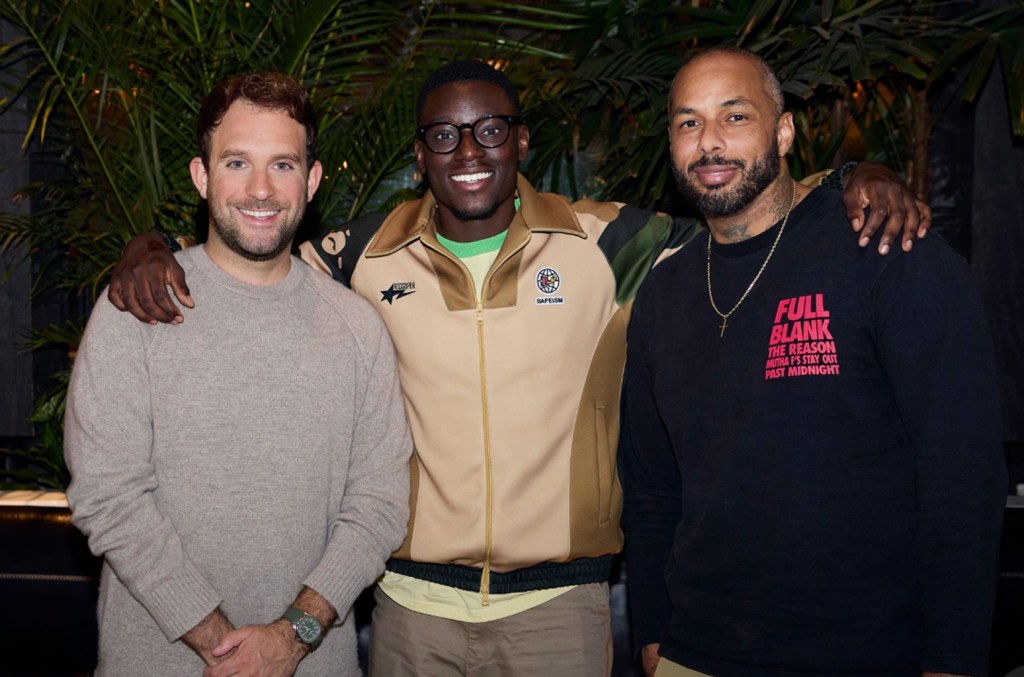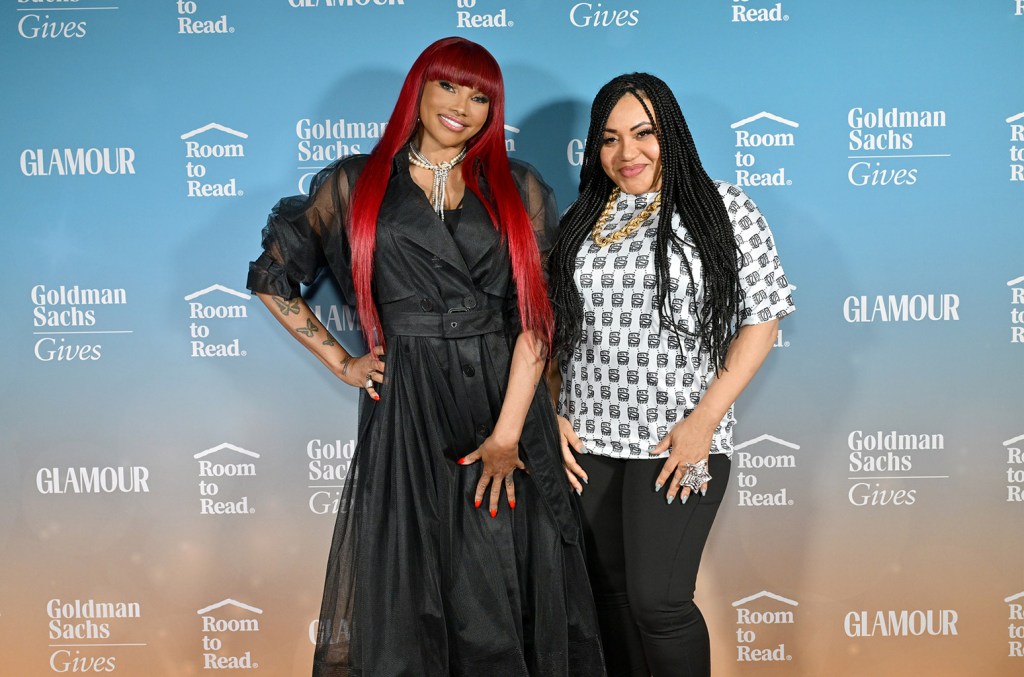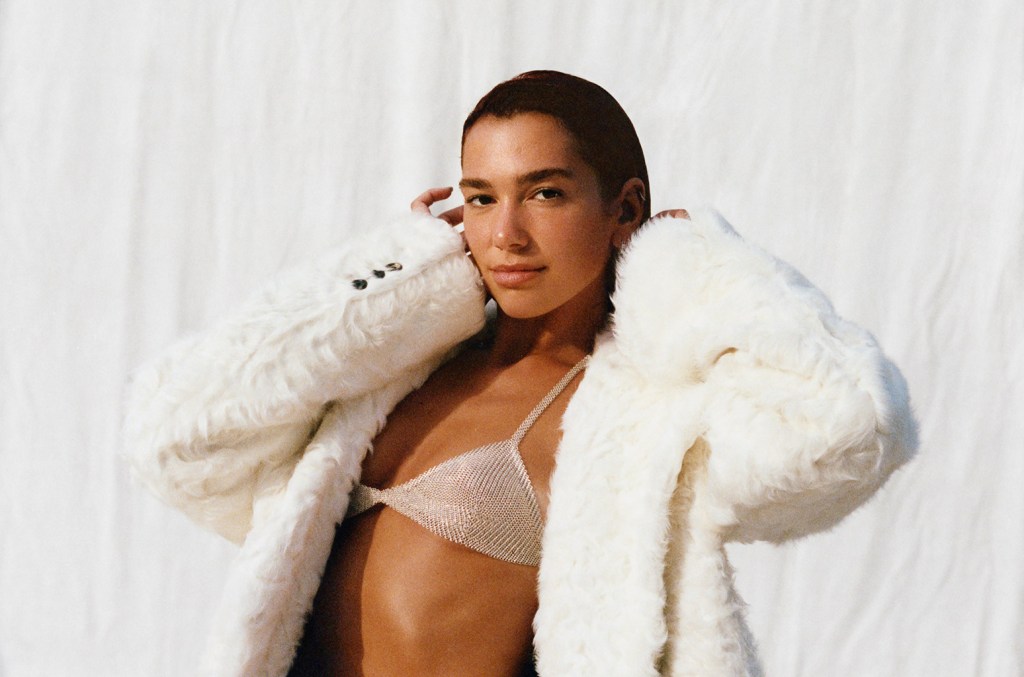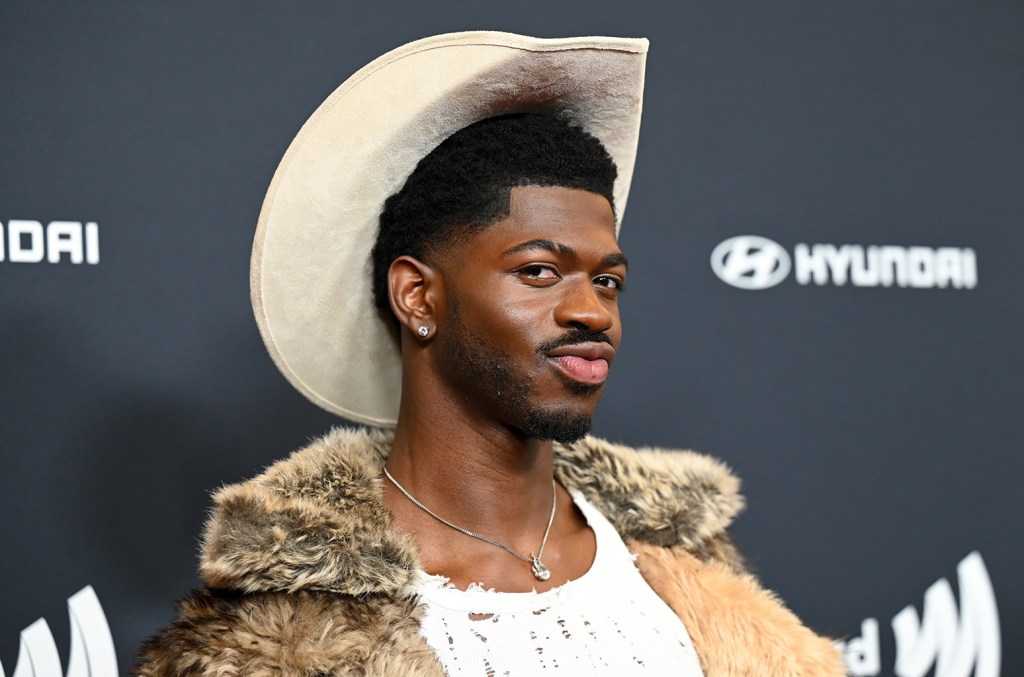Business
Page: 58
Avex Music Group (AMG) announced on Tuesday (May 20) that it has signed fast-rising producer Elkan to a global publishing deal. Additionally, AMG has partnered with Elkan on his JV publishing company, Toibox by Elkan. Under the new deal, Elkan’s catalog, including previous works and future output, will be published through AMG. Already this year, […]
Post Malone is opposing an attempt by his ex to move their nearly three-year-old daughter permanently to California, saying in a new court filing that the child has lived in Utah most of her life and should remain a resident there.
The star (Austin Richard Post) filed a motion Monday (May 19) to dismiss the custody petition brought in Los Angeles court last month by his ex, Hee Sung “Jamie” Park. Post and Park share a child, referred to anonymously in court filings as “DDP,” who was born in May 2022.
According to the motion, the family lived together in Utah until Post and Park ended their relationship this past November. Park then decided to relocate to Los Angeles, and Post says he agreed to share custody and move the child between California and Utah every two weeks.
Trending on Billboard
In April, however, Post says he learned that Park was planning to file for primary physical custody and change their daughter’s residence to California. Park “rushed to enroll DDP in every type of activity she can” in Los Angeles to demonstrate the child’s residence there, Post claims, even though he says DDP’s nanny and doctor are in Utah and she has long attended daycare, music classes and swimming lessons there.
Post filed a paternity action in Utah on April 14 after learning of Park’s plans, he says. Park then brought her California petition for primary custody two days later, and the singer alleges Park’s petition “intentionally misleads” the Los Angeles judge by failing to mention that the child has lived in Utah nearly her whole life.
“I do intend to work cooperatively with Jamie to ensure that DDP has frequent and equal custodial time with her mother,” wrote Post in his declaration. “I do not consent to Jamie’s back door attempt to change DDP’s residence from Utah to California. I request that the California court admonish Jamie for her lack of candor, gamesmanship in attempting to forum shop, and her intentional action to try to mislead the court about DDP’s home.”
Post wants the California custody petition dismissed. He says the former couple’s dispute should be resolved in Utah, where he was the first to bring a custody action and where their daughter has spent nearly three years.
“Jamie’s conduct of attempting to forum shop to change DDP’s home state without Post’s consent or a Utah court order should not be condoned by the California court,” wrote Post’s attorney, Laura Wasser. “California law provides that, under the facts of this case, DDP’s home state is Utah, and subject matter jurisdiction over her custody remains with the Utah court.”
A judge in Los Angeles County Superior Court is scheduled to consider Post’s dismissal motion in late July. Park’s attorney did not immediately return a request for comment Monday.
Post is currently headlining his Big Ass Stadium Tour and is next scheduled to play U.S. Bank Stadium in Minneapolis on Tuesday (May 20).
Salt-N-Pepa is taking Universal Music Group (UMG) to court to regain control of the duo’s masters, alleging in a new lawsuit that the record label is refusing to honor copyright clawback rights and has instead “punished” the legendary hip-hop act by removing some of its music from streaming.
The lawsuit, filed Monday (May 19) in New York federal court, accuses UMG of ignoring Salt-N-Pepa’s so-called “termination rights” under Section 203 of the Copyright Act. This provision allows artists who sign over their master recordings to regain control of that intellectual property 35 years after a song’s release.
UMG owns Salt-N-Pepa’s masters per two contracts that the “Push It” singers, Cheryl “Salt” James and Sandra “Pepa” Denton, signed with UMG subsidiaries Next Plateau Records and London Records in 1986 and 1992.
Trending on Billboard
Salt-N-Pepa served UMG with a notice of termination rights in 2022, claiming its albums Hot, Cool & Vicious (1986) and A Salt With A Deadly Pepa (1988) were both up for copyright termination in 2024. The duo also said Blacks’ Magic (1990) and A Blitz of Salt-N-Pepa Hits (1990) are up in 2025 and that Very Necessary (1993) — which peaked at No. 4 on the Billboard Hot 100 — is up in 2026 alongside The Greatest Hits (1991).
But UMG allegedly rejected Salt-N-Pepa’s notice as “invalid and ineffective,” claiming termination rights do not apply because the albums were “works made for hire.” UMG then took Hot, Cool & Vicious and A Salt With A Deadly Pepa down from streaming, a move Salt-N-Pepa describes as “punishing” the group by holding their music “hostage.”
“UMG has, in fact, halted exploitation of the relevant sound recordings in the United States, thereby effectively demonetizing plaintiffs’ catalogue,” wrote Salt-N-Pepa’s attorneys from the law firm Blank Rome. “This is an effort by UMG to pressure plaintiffs into giving up on their effort to recoup their rights to their sound recordings. Plaintiffs are not willing to do so.”
Salt-N-Pepa’s lawyers say that contrary to what UMG is claiming, nothing in the duo’s original contracts with Next Plateau Records and London Records defined its music as “works made for hire.” UMG therefore “makes no legitimate argument against the effectiveness of the notices of termination,” alleges the lawsuit.
“UMG appears to take the position that it can unilaterally decide when and/or if a recording artist is entitled to termination,” wrote the Blank Rome team. “This is not the law, and UMG does not have this power.”
Salt-N-Pepa is asking the court to declare the duo’s termination rights valid and award it control of the masters. The duo is also seeking monetary damages for UMG’s alleged wrongdoing in an amount “believed to well exceed $1 million.”
The lawsuit comes just months before Salt-N-Pepa is due to become the second-ever female hip-hop act to be inducted into the Rock & Roll Hall of Fame this November. The group’s legal reps say in a statement, “This fight is about more than contracts — it’s about legacy, justice and the future of artist ownership.”
“In a stunning act of retaliation, UMG has pulled their songs from all major platforms in the U.S., punishing them for asserting those rights and silencing decades of culture-shifting work,” the reps add. “Like many artists, they’re challenging a system that profits from their work while denying them control.”
Representatives from UMG did not immediately return a request for comment.
This is not the first time UMG has been pulled into court over termination rights. The label and Sony Music Entertainment both inked class action settlements last year over years of closely-watched litigation, in which recording artists sought to win back control of their masters en masse.
Individual artists have also brought one-off lawsuits over termination rights, such as a case that 2 Live Crew won at trial against a small record label last year. The provision also played a significant role in Cher’s royalty battle with Sonny Bono’s widow, in which a judge ruled that termination rights didn’t trump the couple’s divorce settlement.
LONDON — Dua Lipa has been named as the U.K.’s most-played artist across radio, TV and public places in 2024, surpassing Ed Sheeran, Taylor Swift and more. This is the second time she has achieved the feat, having first done so in 2020.
On Tuesday (May 20) collection society PPL (Phonographic Performance Limited) shared its annual report into the U.K.’s most played music over the past year, with its data reporting the music played on radio, TV and in public places across the UK, including shops, bars, restaurants, gyms, offices and more.
Lipa, who released her third album Radical Optimism in 2024, also features in the most-played songs list, with “Houdini” named as the sixth-most played song in the U.K. last year. Speaking to Billboard U.K. as part of the Global No. 1s issue, Lipa said that 2024 was “the best year of my life,” and that she’s “so proud” of the LP and “where it’s brought me.” The album hit No. 1 in the U.K., and No. 3 on the Billboard 200.
Trending on Billboard
In June 2024, Lipa kicked off her Radical Optimism era with a huge headline slot at Glastonbury Festival in England, which was also broadcast live on the BBC and streamed online globally. Her ongoing tour will head to London’s Wembley Stadium in June, before continuing into North America this fall.
Data released by PPL says that Lipa’s music is played on average 400 times a day, with her 2018 hit “One Kiss” averaging 55 plays per day across UK radio and TV. Ed Sheeran was 2023’s most-played artist, and has claimed the prize seven of the past 10 years.
Seven of the top 10 artists in the PPL’s list were British, with Taylor Swift, Ed Sheeran, David Guetta, Coldplay, Calvin Harris, Ariana Grande, Elton John, Becky Hill, and Harry Styles all placing behind Lipa in the top spot, respectively.
Elsewhere, Noah Kahan’s “Stick Season” was named as the U.K.’s most-played song in 2024, with a number of international superstars dominating the top 10. Teddy Swims’ “Lose Control,” Benson Boone’s “Beautiful Things,” Dasha’s “Austin (Boots Stop Workin’)” and Myles Smith’s “Stargazing” round out the top five.
Alongside Dasha’s triumph, country songs perform well overall perform, with Shaboozey’s “A Bar Song (Tipsy)” (No. 7), Beyoncé’s “Texas Hold ‘Em” (No. 11) and Post Malone’s team-up with Morgan Wallen “I Had Some Help” (No. 12) all appearing in the data.
Peter Leathem OBE, PPL CEO, said: “Congratulations once again to Dua Lipa for leading PPL’s Most Played Artist Chart, and to Noah Kahan for securing the most played track of the year. British artists continue to perform well, making up 70% of the Top 10 – proving they have staying power across the nation’s broadcasters, businesses and public spaces. It is also fantastic to see fresh UK talent such as Myles Smith make a big splash in the top five most played tracks, showing there is plenty of promise in UK music going forward.”
PPL Most Played Tracks 2024
Noah Kahan, “Stick Season”
Teddy Swims, “Lose Control”
Benson Boone, “Beautiful Things”
Dasha, “Austin (Boots Stop Workin’)”
Myles Smith, “Stargazing”
Dua Lipa, “Houdini”
Shaboozey, “A Bar Song (Tipsy)”
Sabrina Carpenter, “Espresso”
Hozier, “Too Sweet”
Coldplay, “Feelslikeimfallinginlove”
Danity Kane singer Dawn Richard continued her testimony Monday at Sean “Diddy” Combs’ sex-trafficking trial, telling jurors that the rapper would “frequently” assault Cassie Ventura — including once at a restaurant in front of Usher and other celebrities.
The testimony from Richard, who rose to fame on Combs’ MTV reality show Making the Band, kicked off the second week of Combs’ criminal trial, in which the music mogul is accused of coercing Ventura and others into participating in drug-fueled sex shows known as “freak-offs.”
Days after she told the jury that she witnessed Combs abusing Ventura — including once trying to attack her with a skillet — Richard recounted other alleged assaults, according to CNN, The New York Times and other media reports.
In one alleged incident, she testified that Combs punched Ventura in the stomach at a Los Angeles restaurant where Usher and other celebrities were present. “She immediately bent over, he [Combs] told her to leave,” Richard testified, according to People. “No one intervened.”
A rep for Usher did not immediately return a request for comment from Billboard. The New York Post reported that Richard’s testimony left it “unclear” if Usher and other A-listers present had actually witnessed the alleged attack.
Later on Monday (May 19), Richard was grilled by defense attorney Nicole Westmoreland over apparent inconsistencies in her testimony, including the infamous skillet statements. In one such exchange, defense attorney pressed Richard about changes in her recollections about Combs’ drug use.
“You would agree with me that as time progresses your story changes,” Ms. Westmoreland asked. “Yes,” Richard replied.
Combs was indicted in September, charged with running a sprawling criminal operation aimed at facilitating the freak-offs — elaborate events in which Combs and others allegedly pressured Ventura and other victims into having sex with escorts while he watched and masturbated. Prosecutors also say the star and his associates used violence, money and blackmail to keep victims silent and under his control.
Once one of the music industry’s most powerful men, Combs is accused of racketeering conspiracy (a so-called RICO charge), sex trafficking and violating a federal prostitution statute. If convicted on all of the charges, he faces a potential life prison sentence.
During opening statements last week, defense attorneys told jurors that Ventura and other women had consensually taken part in the sex parties. They admitted that Combs had committed domestic violence during his and Ventura’s “toxic” relationship and had unusual sexual preferences, but that he had never coerced her into participating in his “swinger” lifestyle.
Ventura, the prosecution’s star witness, spent four days on the stand last week detailing how Combs allegedly controlled and physically abused her during their 11-year relationship.
After Richard wrapped up on Monday, Ventura’s longtime friend Kerry Morgan took the stand, testifying about multiple incidents in which she says she saw Combs attack Ventura. In one, she said Combs entered a bathroom and that she could hear Ventura screaming.
“It was guttural, terrifying. I heard her screaming so I went to the long hallway, they were coming out of the master bedroom and he was dragging her by her hair,” Morgan said, according to NBC News.
Later in the afternoon, jurors heard from David James, a former assistant to Combs, who testified that he once told Ventura she should leave the superstar, but that she felt she was unable to do so.
“I can’t. I can’t get out,” James said Ventura told him, citing the fact that he controlled her music career, paid for her lodgings and was her source of income: “I just didn’t think that she could easily leave.”
The trial is expected to pick up again on Tuesday (May 20) with more testimony from James. The proceedings are expected to last until early July.
Jennifer Lopez is facing copyright infringement claims for allegedly posting two paparazzi pictures of herself outside a Golden Globes pre-party in January without paying to license the photos.
Lopez was hit with a pair of federal court lawsuits on Saturday (May 17) from photographer Edwin Blanco and photo agency BackGrid USA. They say they co-own the two images of the pop singer and actress standing outside the Amazon MGM Studios x Vanity Fair Party at Los Angeles’ swanky Bar Marmont the night before this year’s Golden Globe Awards on Jan. 4.
A lawyer for Blanco and BackGrid alleges Lopez posted the photos to her Instagram and X accounts on Jan. 5 without permission. This supposedly set off a spate of reposts from fan pages and fashion brands, including the designer of a faux fur coat Lopez was wearing in the photos.
Trending on Billboard
“Ms. Lopez’s unauthorized use of the Images is commercial in nature, intended for the purpose of self-promotion,” wrote attorney Peter Perkowski. “For example, Ms. Lopez used the images to spotlight the designer of her clothing and jewelry, leveraging the publicity from the event to promote her fashion affiliations and brand partnerships.”
According to the lawsuits, a representative for BackGrid and Blanco contacted Lopez’s team about the alleged copyright infringement the next week. Perkowski says the two sides had “fruitful discussions” and orally agreed to a monetary settlement, but Lopez never signed a written settlement agreement and has not paid the promised money.
The lawsuits also note that Lopez was previously sued in 2019 for posting an unauthorized paparazzi image of herself and her then-boyfriend Alex Rodriguez to her Instagram account. That case, also brought by Perkowski, was ultimately dismissed voluntarily in 2020.
“This prior litigation placed Ms. Lopez on notice regarding the legal requirements and potential consequences associated with the use of copyrighted images without proper authorization,” continued Perkowski. “Despite this, Ms. Lopez has continued to engage in similar conduct, demonstrating a willful disregard for BackGrid’s copyrights through a pattern of behavior that undermines the rights of content creators.”
BackGrid and Blanco are accusing Lopez of willful infringement under the federal Copyright Act, which could entitle them to damages of up to $150,000 per photo.
Lopez’s reps did not immediately return a request for comment on Monday (May 19).
While seemingly strange, it’s quite common for celebrities to be sued for posting paparazzi photos of themselves to social media. Artists including Miley Cyrus, Dua Lipa and Justin Bieber have all faced similar lawsuits in the last few years.
As Billboard wrote in 2022, U.S. copyright law is on the side of photographers and image licensers. Though it may seem unfair, celebrities do not automatically co-own images of themselves and therefore don’t have the right to repost them for free.
Regional Mexican music imprint Kartel Music is rebranding as K Music, it was announced on Monday (May 19).
Founded in 2019 in Riverside, Calif., the label has played a pivotal role in promoting regional Mexican music while helping drive its recent global expansion.
“This rebranding to K Music marks a significant milestone for our team and artists,” said Freddy Becerra, CEO/co-founder of K Music, in a statement. “In just a few years, our artists have topped charts and earned recognition from global tastemakers like Billboard. Our new name reflects an ambition with no borders.”
The decision to renew the brand is part of a strategy that promises to “continue to amplify its impact,” a press release reads, adding: “The new identity reflects the label’s evolution and global ambitions, reaffirming its commitment to growth rather than signaling any detachment from its cultural roots.”
K Music also boasts a refreshed visual identity and updated logo.
Trending on Billboard
Leonardo Soto, CFO/co-founder, added, “Our name may be new, but our heart remains the same. K Music will continue to uplift the Mexican talent and culture that shaped Kartel Music, even as we expand into new territory.”
K Music represents some of the genre’s hottest stars, such as Luis R Conriquez, who graced the cover of Billboard last September. His 2024 album, Corridos Bélicos, Vol. IV, debuted at No. 5 on Top Latin Albums, No. 3 on Regional Mexican Albums and No. 36 on the Billboard 200. Then there’s Tony Aguirre, who boasts 7.5 million monthly listeners on Spotify and has collaborated with Xavi and Luis R in the early stages of their careers.
The label is also home to acts such as Dinamicos Jrs and Joel de la P, who has written hits for Peso Pluma and Tito Double P and released his breakout track, “Dembow Bélico.” K Music’s rebranding comes six years after its launch amid an ongoing crackdown on narcocorridos in Mexico.

Ed Sheeran wants the U.S. Supreme Court to finally end one of the long-running lawsuits claiming his “Thinking Out Loud” infringed Marvin Gaye‘s “Let’s Get It On,” calling a recent appeal to the high court “baseless.”
The star’s accuser — a company that owns a partial stake in Gaye’s 1973 song — asked the justices earlier this year to revive the case, which was dismissed in November after a lower court ruled that the two tracks share only basic “musical building blocks.”
In a response Friday (May 16), Sheeran’s attorneys said the “Thinking” case is not the kind of precedent-setting case that’s worth the Supreme Court’s time — but that the accusers are using a “false premise” and “baseless assertions” as it “pretends” that it is.
Trending on Billboard
“The question which petitioner purports to present is not actually presented by this case but has been fabricated in effort to attract this court’s attention,” Sheeran’s lawyers wr0te. “The petition should be denied.”
Sheeran has faced multiple lawsuits over “Thinking,” a 2014 track co-written with Amy Wadge that reached No. 2 on the Billboard Hot 100 and ultimately spent 58 weeks on the chart.
He was first sued by the daughter of Ed Townsend, who co-wrote the famed 1973 tune with Gaye. That case ended in a high-profile jury verdict that cleared Sheeran of any wrongdoing.
Thursday’s petition came in a separate case filed by a company called Structured Asset Sales (SAS), an entity owned by industry executive David Pullman that controls a different stake in Townsend’s copyrights to the legendary song. That suit was rejected in November by the federal Second Circuit appeals court, which said the lawsuit was essentially seeking “a monopoly over a combination of two fundamental musical building blocks.”
“The four-chord progression at issue — ubiquitous in pop music — even coupled with a syncopated harmonic rhythm, is too well-explored to meet the originality threshold that copyright law demands,” the appeals court wrote. “Overprotecting such basic elements would threaten to stifle creativity and undermine the purpose of copyright law.”
In a petition to the Supreme Court in March, SAS argued that the appeals court’s ruling had unfairly restricted its allegations to written sheet music rather than all elements included in Gaye’s iconic recorded version. That thorny issue, which has also cropped up in other major cases over “Blurred Lines” and “Stairway To Heaven” in recent years, must finally be resolved by the high court, the company said at the time.
“The rights of thousands of legacy musical composers and artists, of many of the most beloved and enduring pieces of popular music, are at the center of the controversy,” SAS’s lawyers wrote.
In Friday’s response, Sheeran’s lawyers said the stakes of the case had been vastly overstated — that the case law was clearly settled, that there was no controversy among the lower courts, and that it was SAS that was threatening to upend the law: “The self-serving free-for-all petitioner posits would foment vast uncertainty and encourage rampant speculation, decades after the fact.”
Appeals to the Supreme Court, known as petitions for writ of certiorari, face extremely long odds. The court takes less than 2% of the roughly 7,000 cases it receives each year, hearing only the disputes it deems most important to the national legal landscape.
Lil Nas X can’t be sued by an Instagram user who claimed the superstar stole his distinctive “poses” and used them in his own posts, federal appeals court says – ruling that the dispute images “share few similarities” and Lil Nas likely never saw them anyway.
Rodney Woodland, a freelance artist and model, claimed in his 2022 lawsuit that the “Old Town Road” rapper (Montero Lamar Hill) had illegally replicated several provocative photos in which Woodland struck elaborate poses while partially nude.
But in a ruling Friday, the U.S. Court of Appeals for the Ninth Circuit says that the dueling sets of Instagram posts share only a few scattered similarities that didn’t legally add up to copyright infringement.
Trending on Billboard
“Hill’s photograph shares almost nothing in common with Woodland’s,” Judge Kenneth K. Lee writes, analyzing two of the images. “The photos both depict a Black man folded in on himself, but the similarities stop there. The objective elements in the photos—the men’s poses, colors, lighting, backgrounds, etc.—are different.”
The appeals court also rejects Woodland’s lawsuit for an even simpler reason: That Lil Nas had likely never seen the images he was accused of copying. That issue – known as “access” in copyright law – is a crucial component in any infringement lawsuit.
“It is not enough to simply allege that [Lil Nas] is an active user of Instagram and thus had a reasonable possibility of viewing Woodland’s photos,” Lee writes for a three-judge panel. “There are over a billion users and many more posts on Instagram. The mere fact that Hill uses Instagram and that Woodland’s photos are on Instagram raises no more than a bare possibility that Hill viewed Woodland’s photos.”
Attorneys for both sides did not return requests for comment on the ruling on Monday.
Woodland sued Lil Nas in June 2022, claiming the rapper had ripped off 11 of his copyrighted photographs, illegally copying “original and unique elements” of them including “poses, colors, lighting and coloring.” The images all feature Woodland and Nas naked with their genitals obscured, either by their pose or the use of editing elements.
A federal judge dismissed the case in 2023, and the Ninth Circuit affirmed that ruling on Friday. In its written opinion, the appeals court included side-by-sides of each disputed pair of photos and detailed why each of Nas’ posts were not improper.
“The commonalities go no further than the depiction of a man reclining on his side with certain body parts strategically covered — a common pose in photos of male models and actors,” the court wrote about one set of images.
Several of the disputed photos featured both Woodland and Nas “draped in chains.” The court said that was a clear similarity, but not one that trigger’s copyright law’s protections for creative expression.
“The idea in each of the photos is the same — the provocative image of a Black man in chains,” the court wrote. “But that idea is not protected — indeed, it is a common motif in many pieces of art. Only the expression through the selection and arrangement of objective elements receives copyright protection.”
Friday’s ruling carries added importance because it is a so-called precedential ruling, offering new case law on the issue of copyright “access” in the era of social media.
The court said the rules had involved in an analog world and that Instagram and other platforms had made it “easier than ever” for copyright works to be widely disseminated. But the court also warned that accusers would still need to prove that an alleged infringer had a good chance of seeing their work — and that none of Woodland’s posts had recieved more than 75 “likes” on Instagram.
“Social media and other digital-sharing platforms could make it easier for plaintiffs to show that defendants had access to their materials —but only if they can show that the defendants had a reasonable chance of seeing their work under that platform’s algorithm or content-sharing policy,” the appeals court wrote. “That is a big “if”— and, as explained below, Woodland has fallen short here.”
It’s a familiar pattern: paisley, to be specific about the visual; cutting and masculine, to identify the sonics.
A late-1960s version of the Telecaster guitar with that amoeba-like design and signature sound was particularly fascinating to Brad Paisley once he discovered that Fender had produced a line that matched his last name.
Now he has partnered with the company to create a limited-edition Brad Paisley 1967 “Lost Paisley” Telecaster, a select line of guitars that captures the vintage appearance and muscular tone of the instrument that was introduced to the market in 1968.
“There’s some magic involved in getting these things to feel old again and new again,” Paisley says in a small room on the second floor of Fender’s East Nashville building. “We had to really figure out what was it that made these things so cool. They are a unique moment — like, why in the hell Fender ever thought it was a good idea to make Paisley Telecasters? And then here I come, born with the strangest last name.”
The Tele was already legendary before Paisley’s national arrival, associated with the likes of Keith Richards, Vince Gill, Muddy Waters and Nashville studio veteran Brent Mason, who contributed key licks to recordings by Alan Jackson, Brooks & Dunn, George Strait and Lee Ann Womack. Country Music Hall of Fame member James Burton gave the Paisley Tele a high profile when he started playing a red model during Elvis Presley‘s concerts.
Trending on Billboard
“They became cool,” Paisley says. “Otherwise, I am Brad Plaid. I’d have had to change my name by the time I had a deal. [There’s] nothing cool about Paisley, but it was, luckily, cool thanks to James.”
The sound is cool, but there’s something nerdy about making guitars. And Paisley celebrated the retro instrument line by performing a short set at Fender for an invitation-only crowd of insiders and fellow nerds, including Steve Wariner, who joined Paisley’s band for a rollicking, extended version of “Workin’ Man Blues.”
Paisley’s guitar project owes its reemergence to one of the nerds attending that day. Canadian broadcaster Alan Cross spotted a Craigslist ad for an ammo case of blue Cling-Foil, the adhesive wrap Fender used on the Paisley Tele back in the day. Cross talked the seller from $50 down to $25 — and, to keep peace at home, told his wife he’d only paid $20 for the material.
Once that foil got into Fender’s hands, the company had the opportunity to re-create the line, and Paisley worked hand in hand with Ask Zac YouTube host Zac Childs, Glaser Instruments owner Joe Glaser and the Fender team to learn the nuances of the Paisley Telecaster production process: assembling the neck, body and pickups; applying the paper wrinkle-free; and covering it with a sleek finish.
“The finish is a key element,” Paisley says. “It’s not just the look of it. It does change everything about how it responds. So it’s really great that they were willing to sort of go down the rabbit hole with me. We’ve worked on this for a year now, trying to get it exactly right.”
In recognition of the Lost Paisley’s 1967 model year, Fender will produce 67 guitars through its Custom Shop in Corona, Calif., pricing them at $7,000. Paisley will manufacture 19 pieces with the Fender Nashville team, videoing the assembly and playing each guitar, providing its future owner an assessment of that guitar’s particular strengths and weaknesses. He’ll burn the neck of each of them with a cigar to simulate the abuse they take onstage, and the cigar label will be pasted inside the guitar cavity.
“I’m going to have time-lapse cameras set up,” Paisley explains. “As I paint each one, I will hold up the number, you’ll see me [build] it, you’ll get a little video, and then I’ll tell you what I think of it. I’ll play it once it’s assembled. They get a guitar with its birth [documented], and then a lot of case candy, the really fun stuff, too. There’s all these cool old campaigns and bumper stickers and things they did in the ’60s with Fender. They had these buttons that said, ‘Fender Lovin’ Care,’ and they had the ‘Peace, Love’ bumper sticker. Your case will be covered.”
Paisley is covering plenty of other bases as well. For starters, with the economy poised for a likely downturn, The Store — a referral-only grocery store for financially struggling Nashvillians that he co-founded with his wife, actress Kimberly Williams-Paisley — is expected to experience greater demand at a time when a portion of its donors are tightening their belts.
“It’s going to be probably a really important thing for people that didn’t expect to need it coming up, based on what things look like,” Paisley predicts. “There’s funding that went away, but at the same time, we are in a really generous town. I knew this when we decided to try this idea. There are really generous people here, and there are generous people outside of Nashville that know about it, that are committed to helping us in a lot of ways, so it’s not easy right now, but it definitely keeps me sane.”
Meanwhile, he’s optimistic about changes at Music Corporation of America, formerly Universal Music Group Nashville. UMGN chair/CEO Cindy Mabe, who was key in bringing Paisley to the label, left the company. New MCA chief creative officer Dave Cobb and senior vp of A&R Austin Jenkins successfully quelled any apprehensions about the turnover.
“New regimes at labels, which I’ve dealt with three or four times in the course of my career, can make it very clear right away whether or not they get you,” Paisley notes. “These guys have really done a great job of being like, ‘We get you, and we want to empower you to be who you want to be.’ And I’m thrilled so far.”
Paisley was prepared for the new leadership to present a game plan that might not resonate with him. Instead, the team came in with questions.
“They were like, ‘Will you play us some stuff? Will you talk to us and give us an idea of what you have, and what you are in your mind, and what you want to be?’ ” he says. “Then they came up with ideas, sitting there with me, that I went, ‘Oh, I love that.’ The next thing you know, we have days on the calendar now based on one idea in a meeting. So I’m really hopeful that this is a good thing.”
The Paisley pattern is set for its next chapter, whether it’s for the Fender guitar, the artist or both.

 State Champ Radio
State Champ Radio 









